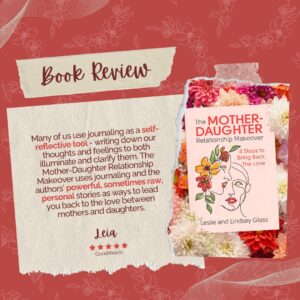Do You Know The Signs Of A Toxic Family
If you don’t know the signs of a toxic family, then you might be living in a situation where changes could be made but aren’t. You see, when you’ve only been part of a toxic family, you don’t know what a healthy, nurturing family situation looks like. That’s the problem. The abnormal becomes normal. So, lets fin out what abnormal looks like and see if it’s time to make changes.
Signs of a toxic family are clear once you know the red flags. We don’t get to choose our families so many people find themselves in complicated dynamics and don’t know why. There’s no shame in coming from an unhealthy family, but once you know the signs there is plenty you can do to heal yourself and potentially others.
What Are The Signs Of A Toxic Family
A toxic family is more than just neglectful. I grew up in a family of benign neglect. That means no one took the time to mentor me or support my interests or help me with anxiety or fear. There was a facade that everything was fine. The result was I felt alone and insignificant. No one was there for me. When you grow up in a neglectful home, you have trouble learning that it’s possible and important to be able to ask for help.
Neglectful is sad and can definitely be dangerous if you or someone in your family has suicidal thoughts, or when you need help and guidance. But neglect isn’t necessarily toxic. In my case, nobody talked behind my back, or tried to trick me up and shame me, or stole my possessions, or undermined me so that I couldn’t succeed. On the other hand, my adult family was toxic and scary. The differences can be confusing so let me explain.
Signs Of A Toxic Family Include Feeling Unsafe And Unheard
One of the hallmarks of a toxic family is that you can’t trust anyone. In a toxic family, members pit themselves against each other to gain the upper hand. It’s like siblings who want to get each other in trouble, but it’s everyone making trouble as a family culture. Family members may gossip and triangulate against each other. They may also gaslight and twist the truth to get control of a situation. If you’re in a toxic family, you feel that you can’t speak up and give an opinion without getting an argument.
Signs Of A Toxic Family 1. Conflict and Drama Reign
In a dysfunctional family dynamic, issues aren’t handled effectively, or maybe not managed at all. A toxic family, on the other hand, is more than ineffective; it’s actively undermining and hurtful. In a toxic family, all issues are a potential source of drama and conflict. Casting blame, playing favorites, and shaming are common. Arguments are conducted at full volume with raised voices and sometimes violence. Every interaction may feel like a struggle, and you have to walk on eggshells at home to avoid conflict.
Signs Of A Toxic Family 2. Secrets And Lies
All families have secrets they don’t want revealed. In families where there is a history of emotional abuse or substance use disorder, however, keeping secrets creates a toxic family environment. Do you have family members who demand that you don’t tell? When the family looks good to people on the outside, but family members know the facade is just that, they’re living in a toxic situation.
Ask yourself why can’t you tell the truth? Why does a family member need the protection of lies? Can your friends come and visit? When a family story is based on lies, children grow up not being able to tell the truth, or even knowing what the truth is.
They may see things with their own eyes, but are told those damaging things aren’t really happening, which is gaslighting. Someone has to be protected, or maybe the family image needs to be protected. If there is an abuser in the family, that person may need to be in control. The need to be in control can also result from narcissism.
Signs Of A Toxic Family 3. Family Members Have No Boundaries
Your personal space, your possessions, money, food, and other things are frequently taken from you or trampled. If you say you don’t want something, or don’t want to do something other family members want you to do, your boundaries don’t matter. You will and wishes don’t mean anything, and perhaps you will be punished for resisting.
Perhaps you’ve been excluded from celebrations, or you’ve been threatened into missing an event because someone wants to control you. Or, maybe you’ve moved out of the toxic home, but your parents still demand all access to your new home – keys to the house/apartment, knowledge of your whereabouts during the day and evening, passing judgment on your partner.
Signs Of A Toxic Family 4. You Feel Unsafe
This is the most extreme form of toxic. There are many kinds of emotional abuse in toxic families. Threats, violence, and withholding of love and support are never used in healthy families, but often used in toxic families. When you begin to question your family in a way that makes them un comfortable, you may be in emotional danger. If you actually worry right now about your safety, you may be thinking about escape.
Wanting to escape from a toxic family is healthy, but don’t take action until you learn more about escaping from manipulation. If you are in immediate danger, call (911). If you need to speak to someone domestic violence and are not in immediate danger, call the hotline for information.
Get a FREE Download of The Mother-Daughter Relationship Makeover
More Articles To Read
Benefits Of The Mother Daughter Awe Challenge
What To Do If You Are Misdiagnosed






















